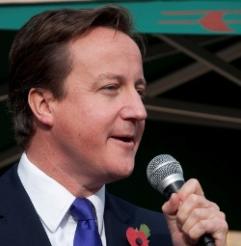Prime Minister David Cameron has announced a range of measures to help small businesses and charities effectively compete for “billions of pounds” of central and local government contracts with larger firms.
The move builds on the government’s aspiration that 25 per cent of government contracts should be awarded to small and medium-sized businesses.
The measures include a new online facility, called Contract Finders, which will publish details on all public sector contract opportunities over £10,000 and the appointment of Stephen Allot, who has a 25-year career chairing technology small and medium enterprises (SMEs), as new Crown Commercial Representative (CCR) for SMEs.
Allot will lead SME product surgeries which will give smaller suppliers the opportunity to pitch innovative products and services to senior procurement officers in government.
The government has also overhauled its approach to assessing companies wanting to do business with it in a bid to cut bureaucracy.
It will seek to eliminate pre-qualification questionnaires from all government procurements under £100,000 so procurers can choose the best route to market for their individual circumstances.
And firms will only have to submit pre-qualification data once for procurements in the same area rather than filling in the same data for different tenders.
All the new measures will apply to central and local government contracts.
Prime Minister David Cameron said the changes will radically modernise public services:
“We are announcing big changes to the way government does business. It will provide billions of pounds worth of new business opportunities for small and medium-sized enterprises, charities and social enterprises.
“We need to make the system more open to new providers, more competitive between suppliers and more transparent for the taxpayer. This is vital as we get to grip with our deficit – helping us tackle waste, control public spending and boost enterprise and growth.
“It will also help modernise our public services, opening them up to the forces of competition and innovation and give our great charities and social enterprises the opportunity to deliver services too.”
LEAN review
The government is also due to implement the findings from its LEAN review, a six week study of the government procurement process to identify and measure the impact of waste in the existing process and identify proposals for a future state.
It plans to implement pilots across Whitehall at the end of March 2011 to test and refine a new process to make doing business with government less costly and bureaucratic. If successful, the new approach will be spread across government departments from January 2012.
Peter Holbrook, CEO of the Social Enterprise Coalition, said:
"We have been waiting a long time for this sort of very practical step to make public spending work better for the economy. SMEs are the engine room of the UK economy and must be supported if we want sustainable growth. While this announcement can be welcomed by the social enterprise community, we want to see 25 per cent of Government business, and more, go to SMEs that are social enterprises. This would help ensure that public spending was truly providing wider social value."









